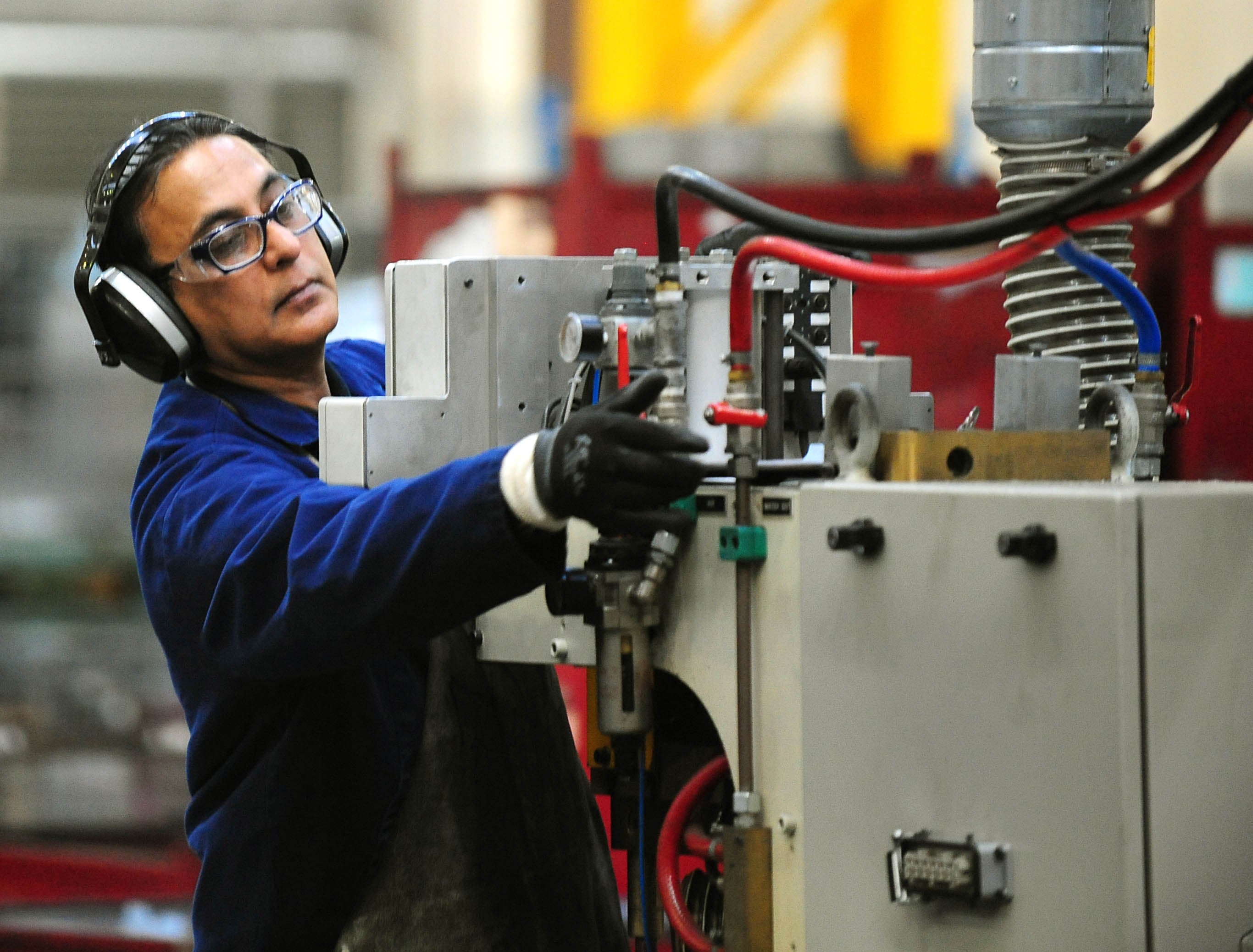UK economy contracts in April as costs crunch sends Covid recovery into reverse
The Office for National Statistics said gross domestic product fell by 0.3% in April, following a fall of 0.1% in March.

Your support helps us to tell the story
From reproductive rights to climate change to Big Tech, The Independent is on the ground when the story is developing. Whether it's investigating the financials of Elon Musk's pro-Trump PAC or producing our latest documentary, 'The A Word', which shines a light on the American women fighting for reproductive rights, we know how important it is to parse out the facts from the messaging.
At such a critical moment in US history, we need reporters on the ground. Your donation allows us to keep sending journalists to speak to both sides of the story.
The Independent is trusted by Americans across the entire political spectrum. And unlike many other quality news outlets, we choose not to lock Americans out of our reporting and analysis with paywalls. We believe quality journalism should be available to everyone, paid for by those who can afford it.
Your support makes all the difference.The UK economy contracted for the second month in a row in April in the first back-to-back fall since Covid struck in 2020 as the cost-of-living crisis brought Britain’s pandemic recovery to an abrupt end.
The Office for National Statistics (ONS) said gross domestic product (GDP), a measure of the size of the economy, fell by 0.3% in April, with all three main sectors suffering a fall in output for the first time since January 2021.
April’s month-on-month drop in GDP was also the biggest contraction since January 2021 and follows a fall of 0.1% in March.
Experts had been expecting growth of 0.1% in April.
The ONS said it marked the first time GDP has fallen for two months in a row since March and April 2020, when the pandemic first hit and sent the economy tumbling.
The figures showed output contracted by 0.3% in the main services sector, largely due to the ending of the Government’s Covid-19 Test and Trace programme and lower vaccination activity.
With the Test and Trace and vaccines impact stripped out, GDP would have risen by 0.1% in April, the ONS said, while it added that, in the three months to April, GDP grew by 0.2%.
But there were also declines in the manufacturing and construction sectors, down 1% and 0.4% respectively in April, with manufacturers in particular noting the impact of soaring prices and supply chain woes.
The ONS said it is seeing anecdotal evidence widely across the economy of firms being hit by record fuel and energy prices, in particular the manufacturing sector.
Chancellor Rishi Sunak said: “Countries around the world are seeing slowing growth, and the UK is not immune from these challenges.
“I want to reassure people, we’re fully focused on growing the economy to address the cost of living in the longer term, while supporting families and businesses with the immediate pressures they’re facing.”
He recently announced a further £21 billion support package for households to help tackle the mounting cost-of-living crisis, including a £400 discount on gas and electricity bills for every home, with measures part-funded by a windfall tax on energy firm profits.
But there are concerns that more measures will be needed, with inflation already running at 9% in the UK and expected to soar past 10% in the autumn as prices rise steadily higher.
A recession ... remains unlikely
Petrol costs have hit new records, with the average cost of filling a typical family car with petrol rising past £100 for the first time last week.
The Bank of England is expected to raise interest rates for the fifth time in a row on Thursday, from 1% to 1.25%, to try to rein in rampant inflation.
Samuel Tombs, of Pantheon Macroeconomics, is forecasting the economy to contract overall between April and June as the cost-of-living crisis hits hard, but still believes the UK will dodge a full-blown recession.
He said: “A recession – two quarters of negative growth – remains unlikely.
“Households’ real disposable incomes should rise in both the third and fourth quarters now that the Chancellor has announced an extra £15 billion in grants during these quarters, equal to nearly 2% of their likely income.”